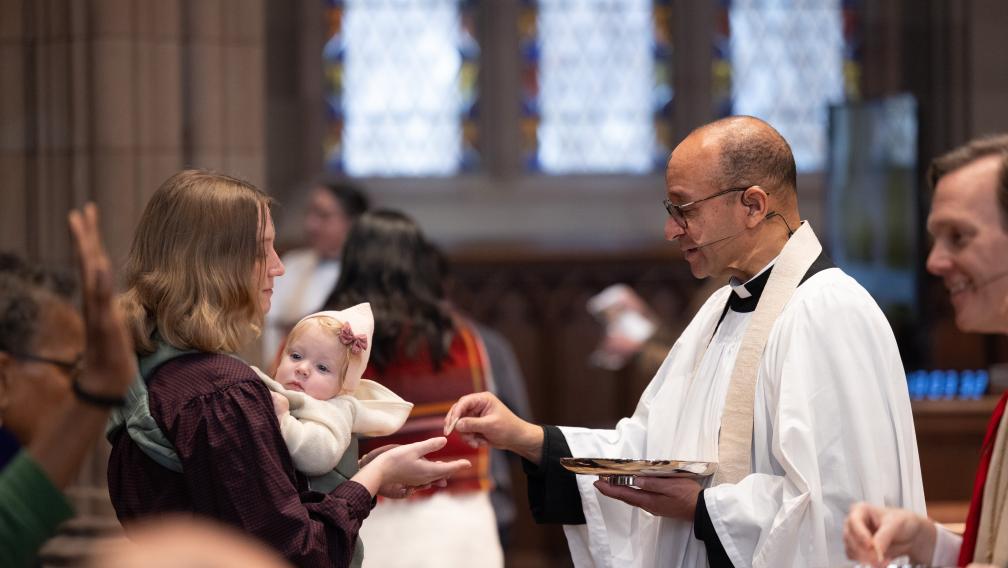A Letter from Father Phil

Read the original op-ed in the Daily News.
One pandemic later, our Wall Street community isn’t what it used to be. The traders who once thronged the Financial District have moved uptown. In their place is a new Whole Foods and an influx of families with school-aged children bringing new vibrancy to our neighborhood. They also bring fresh concerns about the challenges facing students in Manhattan School District 1.
Parents are concerned about more than just the “lost generation” of students created by the pandemic. One single mother told us she lacked the money to buy school supplies for her daughter. Another juggled her two jobs to ensure she could pick her son up from school and help him with his math homework. Neither felt their current path was sustainable.
Those parents knew the challenges their families faced outside the classroom were affecting the academic performance of their children. We see that clearly in our local District 1 schools, which two years ago faced lagging test scores, and a lack of resources to address student underperformance.
In partnership with District 1 schools and community organizations across our parish, Trinity Church is rethinking how to best do our part. Over the last two years, we’ve worked with parents, educators, nonprofit partners, and providers to shape a new framework that considers the whole family, both inside and outside the classroom. Trinity now funds more than $5 million in programming for school-aged youths and their families, and Lorelei A. Vargas, our chief impact officer, ensures that money is fulfilling local needs.
As we reached the end of the school year last month, the results are undeniable. District 1 improved its performance on standardized tests at an astonishing pace.
We see the district’s transformation reflected in the Department of Education’s School Quality Snapshot. According to the data, the percentage of students in District 1 schools meeting or exceeding state standards in math and English has been rising rapidly. Schools across District 1 once trailed most other schools in Manhattan. Now they’re either matching or exceeding their neighboring districts.
Over the past two school years, District 1 saw a nearly 63% increase in the share of students meeting state standards in math — better than all but one of our five other Manhattan school districts. District 1’s per-school average English test performance grew by 33% — the largest in Manhattan. Meanwhile, the number of third through eighth graders reading at state standard levels grew 8.6%, compared to a 2.7% gain citywide during the same period.
To get there, we work with our partners to help individual schools load thousands of backpacks with school- and grade-specific supplies each September. We provide meals, diapers, clothing, cleaning supplies, and other daily needs to our neighbors. And working through community partners like UA3 and Loisaida, we stock local food pantries with groceries that parents can pick up free of charge.
It’s also critical to address a student’s life outside the classroom. Biobus now brings science enrichment to students through a mobile research lab parked right outside of their schools. Henry Street Settlement’s City Trekkers program offers students the chance to experience our city’s unparalleled cultural institutions.
We also hear about the emotional strain that comes with managing childcare in New York City. Post-pandemic statistics show an increase in the rates of anxiety and depression among youth and families, and Trinity has committed to investing more than $1 million towards expanding University Settlement’s Families Thriving program, which offers individual and family therapy, crisis prevention and training to develop positive parenting skills.
Families Thriving clinicians help caregivers manage behaviors, strengthen relationships, and work towards peace at home in spaces that are convenient for their clients — whether that’s at home, at school, or even at a local park.
These efforts offer a model of family engagement that can serve as a roadmap for other school districts across the city. If we are changing the trajectory for future generations of students in our neighborhood, it is because this is a community that has worked hard to work together.
We have learned firsthand that by caring not just for the student in the classroom but also for the family outside, our children do better. They read better. They do math better. They are happier and more fulfilled people. And in the long run, that won’t just improve our test scores — it will help the children in our community grow into educationally nourished adults.





